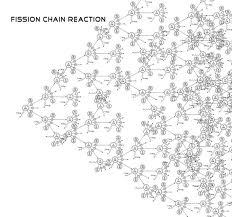
Awareness Series Part 2
Developing Our Ability to Focus
In part one of this short series on Working With Energy I highlighted three key elements one should have. These were:
- Increasing our ability to focus or concentrate
- Work on noticing and eliminating beliefs or thoughts that prevent us from perceiving energy
- Develop our awareness of and our sensitivity to energy
Concentration and focus is related to the Law of Limitation and the ability to focus or concentrate has it's benefits to every aspect of our lives. This is not just critical to energy work, it is needed for someone to accomplish anything significant. When one wants to work with subtle energies even subtle thoughts can sabotage our efforts.
In Part 1, I spoke about how many thoughts we actually have each second, and that the number of non-conscious thoughts is many times higher than the conscious ones. There are many reasons for this, the primary ones being:
- Processing of our experiences by our rational mind before we are consciously aware of them
- Integration of our reactions (thoughts and feelings) with all our other thoughts and feelings
- Influence of our integration of experiences by past thoughts and feelings that we have about "things"
- Influence of our beliefs on both our perception of experiences, it's integration and our historical "memories"
None of the above work independently, hence to improve our concentration we need to be more aware of the dynamics of these factors. In mathematical terms this would be an equation with multiple variables, though I am not trying to solve the equation, just to understand it and how it affects me.
For example, the basic equation of the ideal gas law is PV=nRT. Now I can use this equations for various calculations; however, the importance of the equation is in understanding the relationship between the variables. If I vary one element, how does that affect the others? In this case the equation tells me that if I lower the temperature and keep the volume the same the pressure decreases.
At this point you may well be wondering how this relates to our ability to focus. I have used it as way of considering and examining factors that affect our ability to focus. Certainly I could write an equation for the factors I listed above, that is not as important as getting a feel for how they affect what is going on within our minds. Understanding how the factors listed relate to and affect one another gives a better awareness of how the mind works and what influences might be affecting our ability to focus. With this awareness we can examine our own thoughts and feelings to determine why we struggle with focus. Knowing this, the question becomes "how does this help with mental focus?".
Now, even though I cannot write a universal equation for the relationships of the factors that affect what is going on in ones conscious mind, the dynamics give us a way to determine where and then why we are unable to focus. The reason one cannot write a fixed equation is that the relative weight of the factors varies from person to person unlike the universal gas constant R in the gas law equation. For some the past plays a stronger role than for others, or one may have fewer beliefs than another. Nor does understanding the equation, if it were written out, mean that we will always be able to overcome their affect on our focus. The value is in knowledge about how the relationships between these factors affect us as individuals.
Let us look at an example:
Just a moment ago, I deliberately distracted myself for the purposes of explaining this concept, I looked look out the window of my study. When I do so I see Harvey (the funny looking "thing" on the top of the printer) and past it the lawn, trees, sidewalk, road, the houses across the street, the sky, the clouds and so on. At the conscious level I am thinking about that funny looking thing on my desk and the friend who gave it to me. I am thinking how beautiful it is outside, how green the lawn is, how windy it is (it is making the blinds bang together), that it might rain later and I am also thinking about writing my thought of the day, about Shrek our cat who is wandering about as well as some other thoughts related to what I want and in some cases need to get done today.

Each of my conscious thoughts has a history, attached feelings and thoughts and there are beliefs or concepts associated with them. When we have an experience all thoughts with commonalities to it are activited, though not consciously, and it is these that can affect my concentration (admittedly deliberately so for the sake of illustrating my point).
Now as I turn my attention back to writing this composition I find that my focus has diminished considerably. I need to find it again in order to not only complete my writing, but also to do so effectively and clearly. Where did my focus go? Well, it got lost in all the thoughts I was having, from those pre-processing by my mind prior to my being conscious of them and the integration of what I experienced to commonalities with other thoughts I remember which are also based on commonalities. Once I noticed that my focus is reduced I do a scan of my thoughts to see where it is going, that is which thoughts I have.
The first thoughts that I am conscious of are the ones that have the strongest vibrations associated with them. They will generally be what distracted me in the first place, current things that have had my attention which are primarily those thoughts with the most associated history or beliefs. In this case, there were several. They were thoughts of concern that I may not be able to get everything done today, that I'd really like to focus on this composition rather than other things and that the weather is nice enough for me to go golfing without getting drenched by rain (which hasn't happened much in the last couple of weeks).
It would seem that just three thoughts such as these should be easy to put aside and normally they are; however, I am not using my normal process for this example and I find it is not so simple. As soon as I turn my attention to the first one I find myself thinking other thoughts related to it, these would be ones that are at the border or just below the conscious level. Some of these are related what my mind processed before I became consciously aware of the thought. They relate to WHY I am concerned that I may not be able to get everything done. These being that I have limited time, that each of the tasks are important, that some are more important than others and then these thoughts in turn trigger other thoughts.
In considering what I need to do today I find an entire group of thoughts about it. I think of Shrek and that I must get him more cat food and since he is allergic to some foods and has a special diet I also wonder if they have it in stock. I realize that I want to get the new swing set put up which means I need to clean out the grass and weeds that are growing in between the bricks first and that means dragging the 50kg bag of sand out of the garage. This in turn reminds me that I also need to spray the honeysuckle as we have a problem with bugs that are affecting its health, which in turn reminds me that not only am I out of spray for this but I also want to spray the weeds and the clover.
I also realize I need to check job postings to see if any positions are open for which I am qualified and if so I must then review the position, research the company and then draft a cover letter and that I will need to modify my CV resume so that it is tailored to the position. So, as you can see the mind can go on forever with little details that have different levels of importance, even with just three simple conscious thoughts to deal with.
The "importance" of them is related to my personal history. There have been times when I ignored what was important and it didn't go well as a result. This elevates my concern over some of them further eroding my concentration. I also, like many, would like to think that I can accomplish everything no matter how long the list is. And then there are my beliefs around these, such as am I being lazy if I not succeed at everything, some on the relative importance of each and so on which add to the chain reaction of thoughts.
This chain of thoughts occurred in less than a minute. The combination of all of these is very distracting and in order to write this piece I must go through them. I started with the ones I cam consciously aware of and consider each and how they may affect what I choose to do right now. The first thing I did was consider whether have enough time to get everything I need to do done. To do this means figuring out all the things my mind thinks I need to do.
So, I ran back through the list fairly quickly and with little detail. Shrek came to mind first as he must have his hypo-allergenic food. This being a must do I got up and called the vet clinic to make sure that had some and would put it aside for me to pick up later. With this resolved I can set this concern aside. The next one that comes to mind is that I need to clean out the weeds in the between the bricks, put in fresh sand between the bricks and then unpack and set up the swing. I quickly estimated how long it will take to do this and then move on to other points such as submitting applications and a new one pops up as I do so such as I realize I am hungry and need to eat something.
With each of these I can follow similar steps; I get my head around what it will take to accomplish them which leads me to start adding up the time for each of them. When the list gets longer and the total time starts to approach the whole day related beliefs crop up. These being thoughts related to the relative importance of each and their potential affect on me should they not be completed. So as you can see this brings in time management and other considerations. Other distracting thoughts come to mind, ones that could have me continue this process ad infinitum if I allowed them. What is most important is that I am aware of what my mind is considering.
I did not get into the details about every thought and feeling that came out of that one line of thought, that would have kept me distracted. Nor is the above method my normal process for achieving concentration. It was intended to be an exploration to illustrate how easy it is to lose ones focus, how our minds work and how they can hijack our attention. Now, it may seem that I have exaggerated the number of thoughts; however, I have not. Its purpose is to show a high level of concentration is hard to achieve. I did not follow this method with my thoughts about playing golf, or the other ones as I dealt with those a different way, one I will explain below.
We have these types of thought process going on frequently. It may seem that many of these thoughts, though fleeting though they are more like the tip of a group of icebergs. To attain true concentration one must be able to set aside all that are not pertinent to what we are trying to do. This is the same challenge we have in just "being" rather than always thinking. We let our thoughts run amok almost like the chain reaction of nuclear fission.

In reality, dealing with so many thoughts and feelings might seem almost impossible. It is not, though it is a challenge, mostly because we must shift our focus. My example illustrates that when we try to clear our thoughts by seeing the trees (individual thoughts and feelings) and not the forest (root beliefs and concepts) we can get stuck in an almost infinite loop of connected thoughts.
So, how do we get past this? Well, the key is to consider attaining focus in a different way than that of trying to locate every thought and then purge them. When you look at the above picture of the fission chain reaction you see one event leads to two, then four and so on. Further, one would be trying to eliminate thoughts with even more thoughts which only compounds the problem. This is the general way we view things; we try to grasp it all and hopefully filter out what is not important even though we are rarely successful. The answer to this problem is both complex and simple at the same time.
The answer is complex because it is not easy to do and it is simple because, if you look at it "right" the whole mess boils down just a very short list of root notions. The complexity is in how to simplify the fission chain reaction and the simplicity is that if we can do this then we have only root concepts to deal with rather than so many detailed thoughts. The root concepts are ones the thoughts share.
If I elevate my thoughts from the details (the trees) to the high level root concept (the forest) I have reduced the complexity by orders of magnitude. The challenge now lies in determining what the root concepts or constructs are that they all share. If I can "shut down" concerns and thoughts about the root notion then the associated thoughts and feelings will go with it. An example of root construct would be "repose", the idea of resting or or being at rest. This simple concept when manifested results in literally of millions of different chairs, couches, beds, love seats, benches and so on. What our minds tend to do is focus on this level with its multitude of possibilities rather than the root level of repose alone.
Using my example, what I did was take each thought and let it play out a little so I was aware of the associated thoughts. I only do this briefly with each one to prevent myself from getting too carried away . Now, the goal is to look for the commonalities in each to see if I can find root ideas that bind them together. By considering them together, that is those things that I have to accomplish today, the primary concerns were time needed to get things done, the importance of completing the various individual things themselves and how I felt about getting them done or not.
If I try to focus by examining all the "trees" or the individual thoughts, I would follow the process below:
- I have the thought that I need to do all of the tasks
- Time is limited
- As not all "to do's" are of equal importance I identify the key "to do's"
- Think about which ones I must do and when I can do them
- Look at what time I have to do them in
- Identify the ones I won't be able to get to (if any)
- I pick one and consider my issues with not doing it if I cannot get to it
- I consider the outcomes of not doing this one
- I let go of my issue with it (make it okay to not do it)
- I repeat steps 7 to 9 for each one until all have been gone through
- After the above steps I have a list of things I can get done
- I determine how to divide the time I have to complete the chosen tasks
- Set about doing them
The shorter process would be to focus on the forest with the following steps instead:
- I have the thought that I need to do all of the tasks
- Time is limited
- I scan the list of tasks I have and see that I may not be able to do all of them
- I look for what binds them together and realize that my concern is related to not doing them all
- I consider what time I have and what tasks I must complete
- Where there are more task than time I acknowledge that I cannot do them all
- I let go of my issues or concerns over this by accepting what I have acknowledged as true for me
- I decide which one(s) I can do in the time available
- Determine how to divide the time I have to complete the tasks I must do
- Set about doing them
Using the second process, as I have been doing this for a long time, I do not have to go into great detail about each thought nor do I need to repeat the process for each and every one. For today, completing this composition is important, yes, however, since I did not know how long it would take me to write it I determined that at 1:30 I will stop regardless of where I am and go get Shrek his food. When I get back from that I will check the time and will continue working on it until 4 PM at which point I will again stop to get started on the brick work out back and then put together the new swing and do my chores. After that is done I will return to finish this essay.
I firmly plant this plan in my mind and see if it "feels right". By that I mean I think about my plan and look to see if I react which indicates that I am second guessing and am uncomfortable with my choice. In this case I had no reaction and I could move on to the next set of thoughts that might be distracting and repeat the process.
By doing this over time I have learned that the root issues are generally those such as feeling unresolved conflicts, wants and needs, being safe and secure or in control, self-esteem and personal ability. Of course it seems silly to associate self-esteem and ability with a list of tasks, especially when the list may be too long for anyone to accomplish in a day. I know that this alone will not stop me from "wasting thoughts and time" by thinking about them if I have made them important. What I really need to do is reduce their importance, and by that I do not mean make them a waste of time, just irrelevant in the moment.
Generally, the only way to do this is through personal growth; to recognize that it is silly to take on more than one can accomplish and then "blame" oneself when they cannot do them all. I worked on letting this thought go as it is unreasonable. I realized this a number of years ago. Rather than fight this battle continually I addressed it, in part, by working on it as an issue (not that I am always able to do so easily). That being "why do I feel that how much or what I accomplish relates to how I value myself?".
When we have unresolved thoughts on our minds focusing on anything is a challenge. This is even more pertinent when one is going to perform energy work. To do effective energy work one must be able to concentrate and eliminate the irrelevant. In energy work what you do is recognize that you may have legitimate "human aims" and you put them aside with the understanding that you will get to them in due course and then proceed ruthlessly to limit your attention to the matter at hand. Only by doing this a number of times can one eliminate all other concerns. All thoughts must be focused solely on what your are trying to accomplish, you must ensure that you have considered only what is relevant and that you have missed nothing in your consideration.

When a friend and I had to clear some very strong energy a number of years ago, energy that was making someone very ill, I followed this method. Once I decided to perform the energy clearing I meditated on the task at hand and during that meditation put all personal concerns aside, these being thoughts such as "can I do this?" or "will the energy harm me?" and narrowed my focus down to what I had to do to prepare.
I considered the type of energies I would have to deal with, how they could affect me and "what they could do" and then how I would have to deal with them. Nothing else mattered, and when I was ready, and my friend as well, we went and took care of the energy in fairly short order.
One should do this when shielding from energies, doing healing or other types of energy work. It does take time to be able to clear away thoughts quickly, but if you can find the root concepts that will take away your focus you can deal with them rather than with many individual thoughts. It does get easier with practice. This is what I do whenever I am reading energy as well, I quickly put all my attention on being open to what I perceive and make all other concerns irrelevant.
I have not touched on the affect our minds pre-processing of what we perceive has on our attention because it did not apply to the example. Pre-processing happens because our minds have become programmed to only pay attention to certain things and to either avoid or ignore other aspects. These thoughts are typically either very subtle or too painful to consider. We will only be aware of them once we have cleared some of the "bigger" issues. I touched on this in the June 3rd Thought Of the Day on Playing with our Minds Editor. The more we let go of our issues the more our mind gives us to see.
In conclusion, to improve your ability to focus your attention consider not the details of what is on your mind, instead scan the thoughts you have and try to group the various distractions based on the root concepts that bind them. Over time this will give you the ability to do so more easily and you will be able to improve you focus not only for mundane things but also for energy work of any kind.
End of Part 2
==> Continue to Part 3: Energy Awareness and the Path
© 2011 Allan Beveridge
